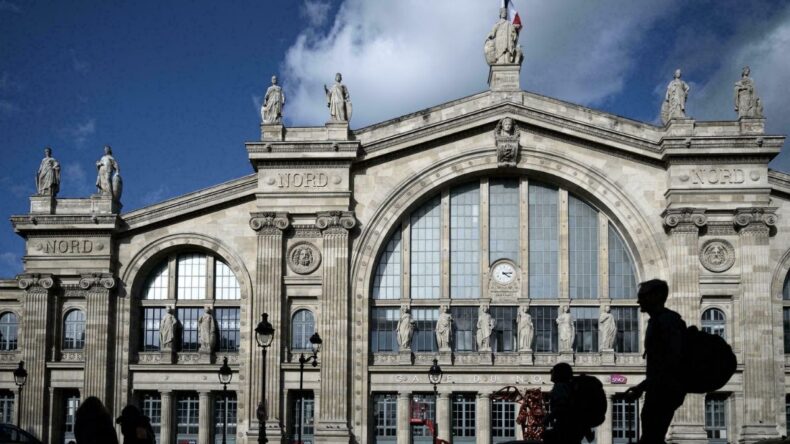On Sunday, the Green of France began electing their successive presidential aspirant in a second-round primary void. It is a rational party stalwart against a self-styled extreme eco-feminine.
Green nominees for the French presidency are constantly at discomfort to ascertain that they are extreme enough for the party basis.
But Germany’s Grünen has long selected a different path, and it also convinces the broader electorate that they can jeopardize and believe as a committee of governors.
According to the document, time is favourable for EU lawmaker Yannick Jadot, the acceptable competitor in Green primary of France, who has created no enigma of his turf with Germany’s Grünen.
His difficulty is satisfying his own party’s grassroots proponents, who have repeatedly opted for the additional extremist alternative when recommended the option.
On Wednesday, Jadot said, our responsibility is to put together strength and govern in a televised dispute with his opposition Sandrine Rousseau, who whacked back by characterizing his trademark of ecology as required in bravery.
It is an ordinary predicament for proponents of France’s Greens, traditionally ripped between a highly oral radical division and an acceptable headquarters keen to laud its pragmatism and electability.
Should they uncompromised their doctrines? Or should they acquire a more uncertain position, just as the Grünen, who endorse governing with the conservatives?
Model of the German’s
In the case of the electoral achievement, the record of the French Green became wishy-washy concerning their German mates.
Between 1998 and 2005, the Grünen were the crucial participants at the national level in Gerhard Schroder’s federation government, when their leader Joschka Fischer was heeded to as vice-chancellor and foreign administrator.
While they have been in the opponent since they are a fraction of decreeing alliances in 11 of Germany’s 16 Lander (regions), allying with a spectrum of gangs from the far-left Die Linke to the prudent CDU.
They have been in exclusive supervision of a 12th Land, Bade-Wurtemberg, for the former decade.
A speaker in Germanic studies at the University of Caen-Normandie, Annette Lensing, said that the Grünen has accomplished regularizing their impression in Germany’s political terrain. They are presently a traditional and plausible group, having verified their proficiency in governing.
‘Realos’ Versus ‘Fundis’
By Lensing of the University of Caen-Normandy, the German Greens have to withstand a long-standing interior battalion between realms (realists) and fundis (radicals).
She explains that the party has mobilized behind a simple, realistic line. They are apparently in endorsement of a socially accountable market frugality.
In disparity, among French greens, the famous realists are conventionally the youth.
Many among them who nudged hardest for leverage, such as de Rugy and the modern atmosphere minister, Barbara Pompili, have come out resigning the Greens to enlist Macron’s LREM party.
Nevertheless, the French Greens assert that correlating electoral documents in France and Germany is intrinsically outrageous, owing to the two nations’ widely varied political policies.
Under Germany’s symmetrical strategy, each ballot is epitomized.
The federation system implies that parties are compelled to work together, as confirmed by Sandra Regal, the deputy executive of Europe Ecologie-Les Verts (EELV), France’s primary Green party.
She also added that if German Greens had to compete with the French strategy, it is reasonably apparent that they would score less than us.
The main distinction is the platform of Grünen’s party, which is hugely less revolutionary than that of the French Greens, he explains.
Also, the German Greens comprehend the necessity to be in authority. In their sense, being locked down by the government sounds like failure.
Realists may have a Promising Trail Document at the Ballot Box, but are they Apt to Provide it Once in Power?
While France remains cautious about not criticizing Germany, they also emphasize that contributing to the government does not inevitably interpret factual litigation against climate change.
In a conference with the environmental news site Reporter, EELV chief Julien Bayou said that the Macron government had ceased to function in understanding that the transition to a green thrift is impossible without rethinking the productivist prototype.
Without a political flip, there can’t be an ecological metamorphosis.
The fact is not about influencing Macron, but to displace him, Bayou inscribed, referring to another former environment administrator, a prominent activist of Green Nicolas Hulot, who retired from the Macron government in revolt for its absence yearning for the environment.
During the primary debate on Wednesday, Rousseau, the revolutionary competitor, strived at the government ecology, emphasizing the little it achieved, despite being in power for the past 20 years. She continued to blow up the politics of only taking tiny steps.
In Germany, the Grünen have assisted in raising awareness about the environmental problems among the public.
Also has pushed up the feud against climate change to the lid of the political program, said Lensing.
Despite their good actions, the German Constitutional Court ordered in April that the government’s efforts were inadequate in meeting its obligations to reduce greenhouse emissions.
Grünen’s candidate for chancellor, Baerbock, has vowed to expedite Germany’s departure from coal, improve renewable energy sources, and enhance the country’s carbon tariff while retaining an acceptable viewpoint on colonial strategy.
Valid to change France’s Greens have pledged to go extensively further in both areas.
Whether they grab a real or a fundi in their major, they will be indeed striving for a strong demonstration by the Grünen on Sunday to stimulate their opportunities in following year’s all crucial presidential debate.













